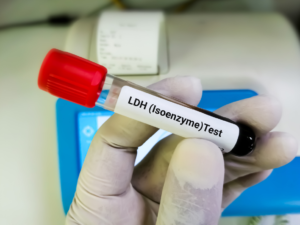What is hepatitis C?
Hepatitis C is an infection of the liver caused by the HCV virus. The lesion creates swelling and inflammation in the liver. If complicated, it can lead to liver failure, liver cancer or cirrhosis.
Infections with this virus are complex to diagnose, as they are asymptomatic. Like hepatitis B, it is transmitted by contact with body fluids or blood of the infected person. When the infection is recent, and even when the infection is already chronic, it is complex to diagnose because there are no signs. Until symptoms secondary to severe liver damage are seen, the patient has no reason to know that he/she is infected.
Types of hepatitis C
The progression of this disease is complicated. It may last only a few weeks in the body, or it may become a lifelong infection. Depending on the evolution of the virus in the patient’s body, we can distinguish several types:
Acute hepatitis C. The patient’s immune system is able to fight the disease, so the virus should disappear in about 6 months.
Chronic hepatitis C. When the 6 months pass and the body has not eliminated the virus by itself, we speak of a long-lasting infection. It can accompany the patient for life. As mentioned above, this virus can cause other serious diseases such as cirrhosis, liver cancer and, in complex situations, death. Unfortunately, chronic hepatitis C is usually the most common type of infection among infected persons.
How is hepatitis C diagnosed?
An anti-HCV antibody test is needed to detect the presence of the hepatitis C virus. This test can measure the amount of antibodies generated by the body to fight the virus. About 30% of infected people can overcome the virus with their body’s own defenses. This is because the body generates a very strong immune response against the infection.
A patient who has already overcome the disease, even if not infected, will still test positive for the virus. Therefore, when positive, it is advisable to confirm the infection through a DNA quantification of the hepatitis C virus.





